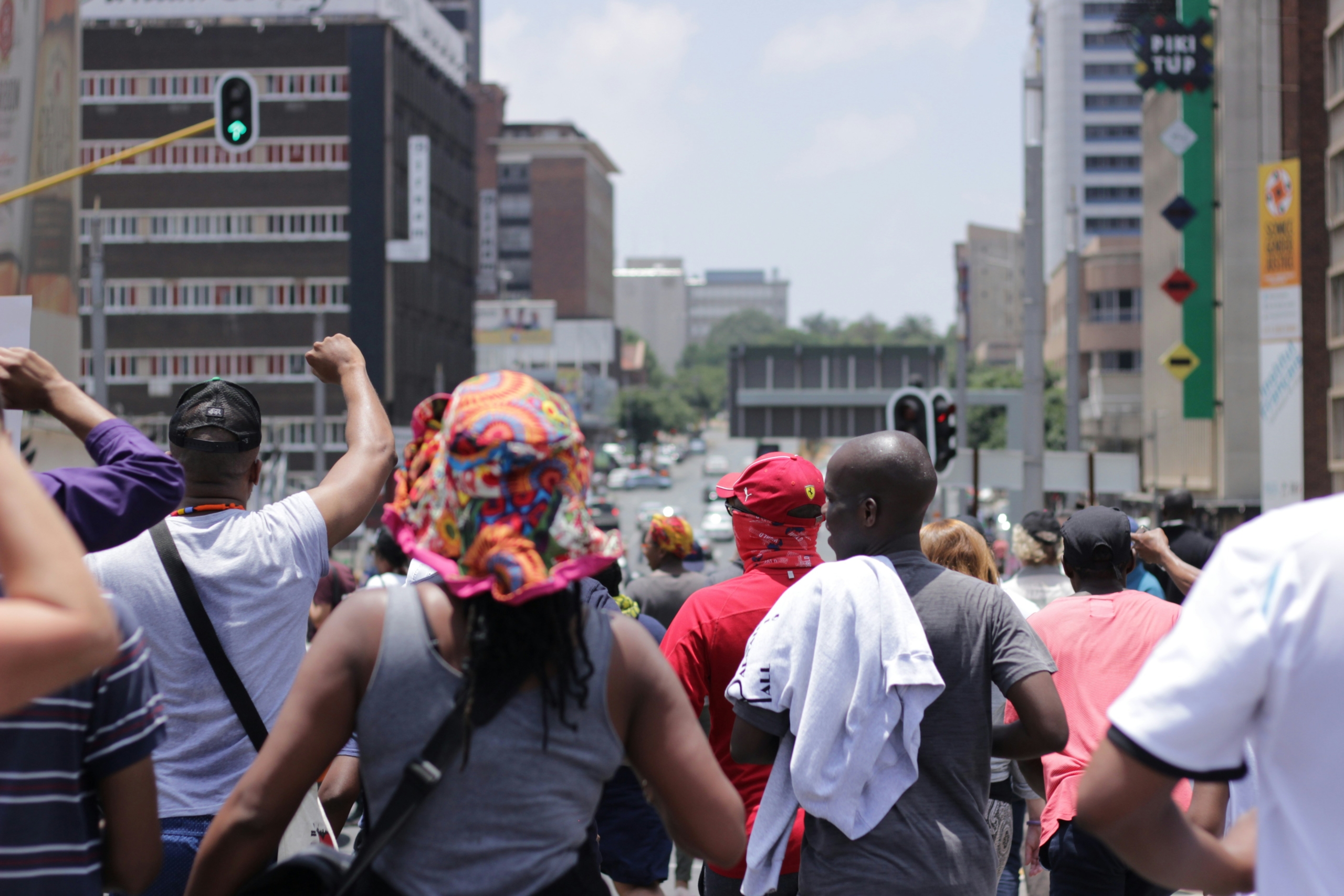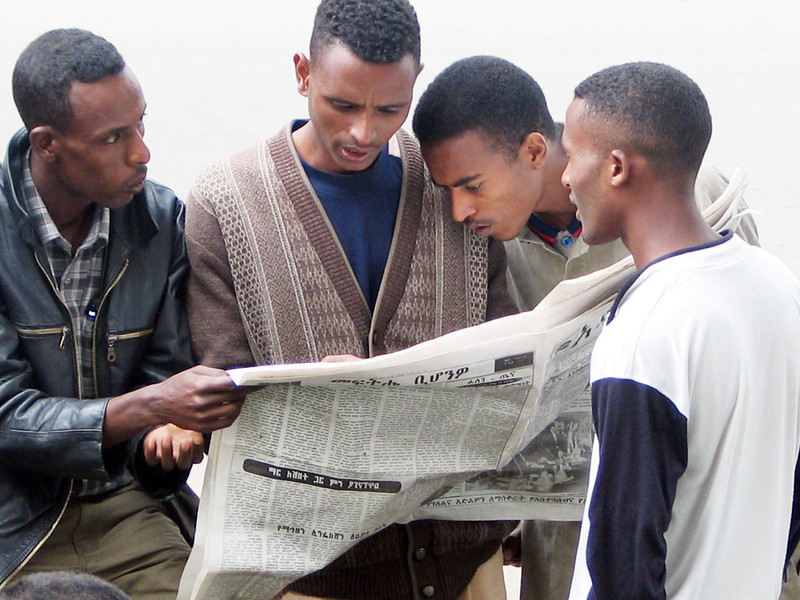We are excited to announce that Brink is now part of Africa Practice. Learn more
Coming to terms with dos Santos’s legacy in Lourenço’s Angola

The death of former president José Eduardo dos Santos in self-imposed exile on 8 July marked the abrupt end of a quintessential Angolan political dynasty. Although his successor, President João Lourenço, was instrumental in the downfall of dos Santos and his clan, Lourenço has also claimed vestiges of the former president’s legacy ahead of elections next month.
Rise to power and civil war
Dos Santos’ reign is closely entwined with Angola’s contemporary history – and the country’s international relations. He joined the marxist People’s Movement for the Liberation of Angola (MPLA) while at school and was sent to the Soviet Union for training. Dos Santos then returned to Angola to support the MPLA in its war against Portuguese colonialism. He represented the MPLA overseas, both during the guerilla period and after Angola won independence in 1975, when he become the country’s first foreign minister. In 1979, he ascended to the presidency following the death of Agostinho Neto – the MPLA’s founding leader.
Dos Santos also lead Angola through the tumult of a bloody civil war, which pitted the MPLA against the Union for the Total Independence of Angola (UNITA) – a rebel movement backed by apartheid South Africa and the United States. Dos Santos presented himself as a champion of internationalism and the struggle against colonialism, while leveraging Angola’s abundant natural resources to secure support from Cuba and the USSR. After the fall of both the Soviet Union and the South African apartheid regime, international involvement in Angola waned but the conflict did not abate. It was only in 2002, that a final peace agreement was signed, with UNITA transforming itself into a political party.
Rampant corruption benefiting the first family
With the war behind him, dos Santos broke with his Marxist-Leninist heritage, moving to selectively liberalise Angola’s economy. Fuelled by rising oil prices, Angola’s economy averaged 11% GDP growth per year between 2001 and 2010. However, dos Santos presided over the development of a kleptocracy with economic activity benefiting his family and MPLA loyalists at the expense of the Angolan people. He appointed his daughter Isabel to chair the national oil company Sonangol and presided over her acquisition of a stake in telecoms firm UNITEL, while also appointing his son José Filomeno to manage Angola’s sovereign wealth fund, FSDEA.
Ceding power and falling from grace
Dos Santos’ crony capitalism eventually proved unsustainable. Ahead of the 2017 elections, he opted to stand aside for defence minister João Lourenço, who secured the presidency for the MPLA. However, once in power, Lourenço quickly turned his back on dos Santos, launching an anti-corruption campaign squarely targeting his predecessor’s clan. The Angolan authorities and their international peers investigated Isabel and José Filomeno’s business activities, resulting in their assets being frozen and forcing the family into exile. While Isabel established herself in Dubai, and José Filomeno found himself detained in Luanda, the former president settled in Barcelona, where his health deteriorated until his death on 8 July.
Aside from his anti-corruption crackdown João Lourenço has worked to diversify Angola’s economy away from its historic dependency on oil – which still accounts for over 90% of total exports, more than 50% of fiscal revenues, and over a third of GDP. Yet, despite an apparent reduction in graft, many international investors remain reluctant to engage in a country which became synonymous with grand corruption during the dos Santos era.
Lourenço has, nevertheless, had some success in securing investment in offshore oil and gas projects, arresting a steep decline in petroleum production, thanks to a series of legal and regulatory reforms passed within months of his ascent to office. The president has also rebuilt relations with the IMF – which supported Angola with a three-year programme – and Western capitals. International goodwill has resulted in the return of mining heavyweights Anglo American, De Beers and Rio Tinto, as well as new investments in renewable power.
Dos Santos’ legacy and 24 August elections
Despite Lourenço securing some visible wins, Angolans have tired at the slow pace of change, rising living costs, and persistent corruption – all of which have provided ammunition for a revived UNITA. While opinion polls show a groundswell of support for UNITA, its victory seems unlikely given the MPLA’s iron grip over the electoral machinery and the state security forces. However, the prospect of a disputed outcome following the 24 August polls is likely to significantly weaken Lourenço’s authority, while electoral violence would undermine his global influence and Angola’s ability to attract new investors, thereby sapping the energy from his reform agenda.
For now, Lourenço is endeavouring to secure MPLA unity and popular support by cloaking himself in dos Santos’s legacy. He declared three days of mourning last month and is endeavouring to have the former president buried in Angola ahead of the elections. The dos Santos family has accepted plans to repatriate the body, but is insisting on his burial after the vote, depriving Lourenço of the opportunity to capitalise on the funeral during the campaign period. Thus, even after death, José Eduardo dos Santos’s legacy clouds Angola’s future.
About the author
Alix Bouheddi is an intern at Africa Practice, with a particular focus on political affairs in Francophone and Lusophone Africa. He can be contacted at [email protected].
* Image source: AFP
Proud to be BCorp. We are part of the global movement for an inclusive, equitable, and regenerative economic system. Learn more


